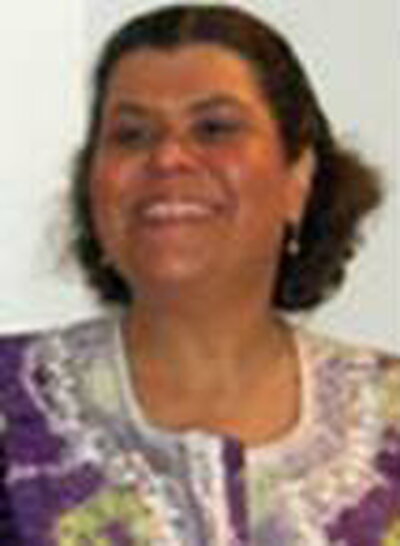

On Thursday, March 10, Professor Claudine Michel, Head of the Department of Black Studies, University of California at Santa Barbara, presented the 2011 W.E.B. DuBois Lecture, entitled "Haiti: Roots of Inequalities, the New Social Contract, and Consideration for Effective Reconstruction" at the Spurlock Museum. Here we present two reports on her lecture, one from Professor Adlai Murdoch of the French Department, the other from African Studies graduate student, Tseleq Yusef.
Claudine Michel: A View of Haiti — Otherwise
By Prof. Adlai Murdoch
In an address conceptualized and situated in the wake of the one-year anniversary of the devastating earthquake in Haiti, Professor Michel, stressed the need for alternative strategies for the present and future development of the island nation, in order to reconceptualize Haiti culturally and politically as a nation-state.
Professor Michel began with a broad overview of the destruction produced by the earthquake. Over 316, 000 people were killed and over 1 million inhabitants were displaced by the horrendous event. In addition, damages exceeded $17 billion and 467,000 people remain relocated to the countryside. However, Professor Michel was careful to point out that these events should not be viewed in isolation, but as part of a vision of Haitian history grounded in stereotypes of suicide and savagery, and a politics of unequal distribution. Her discussion then focused on key moments in the history of a post-independence Haiti, emphasizing the extent to which the country had been dominated, manipulated and victimized over time by a cartel of foreign powers, principally the United States and France. But despite such epochal events as France’s 1825 imposition of a 150 million-franc indemnity — which it took Haiti until 1947 to pay off — and the invasion and 19-year occupation of the island by the United States starting in 1915, Haiti’s social fabric and African ethos survived largely intact; instead, she argued, any failure was that of a succession of Haitian governments and of the international community.
Professor Michel’s climactic point can be best summed up in her claim of the pressing need for a new Social Contract in the wake of the quake. By putting an end to what she called ‘predatory capitalism,’ such as the sweatshops that have flourished there in recent years, the effects of neoliberal policies can be halted in their tracks. With only 2% of international reconstruction funds distributed so far, there is an increasingly glaring contrast between the paucity of local salaries and the relative affluence of NGO contingents on the ground. Finally, in Professor Michel’s view, if we are to relocate Haiti as a viable cultural, social and political actor on the global stage, strict policies of inclusion, decentralization, and the creative use of local resources must be the new benchmarks for bringing a new Haitian state into being. The event culminated in an extended question-and-answer session, closing out an event that no doubt left a lasting impression on all who were present.
Perhaps the most valuable aspect of Professor Michel’s talk is that it emphasized those crucial but hidden aspects of Haitian history that tend to be overlooked in most assessments of the Haitian condition. It is precisely this sort of ‘desanitizing’ of history which is necessary if the real agendas of world powers are to be made visible, and if global politics is finally to be placed on an alternative footing.
Student Response from Tseleq Yusef:

Dr. Michel’s discussion of Haiti hinged on a discussion of the nation’s history, its roots of inequality, and an assessment of political ideologies in an attempt to establish the need for a “new social contract.” For Michel, this contract entails a political as well as economic independence that addresses the lag in Haiti’s development as a nation that is largely the result of colonial conquest, Western Imperialism, and neo-liberal inspired policy initiatives. These as well as other exploitative agendas have created a sociopolitical context that lacks democratic participation, transparency, accountability, and support for potentially meaningful grassroots projects while often marginalizing various state apparatuses. In listening to Dr. Michel’s diagnosis and prescription of Haiti’s health as a nation state, it became painfully clear to me that the experience of Haiti and its citizens’ mirrors that of the post-colonial African state and the African Diaspora. They both share narratives of exploitation, occupation, Westernization and/or Americanization to the detriment of indigenous knowledge, understandings, and interests. As I came to this realization, I began to think how labeling Haiti as a “failed state” is misleading. Considering all the aforementioned experiences in which Haiti was the victim, I am forced to ask if Haiti being a “failed state” is the result of their own failures, or our own.